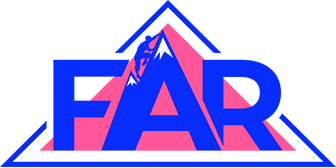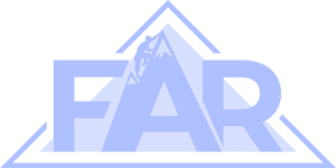Anyone in North Carolina can become addicted to substances and need the services of substance use disorder treatment centers. As a result of this, the behavioral health industry placed substance abuse treatment centers throughout the state. If you are concerned about a loved one with a substance use disorder, one of the best places to find treatment is in North Carolina.
Substance Abuse Statistics in North Carolina
On March 21, 2022, the North Carolina Department of Health and Human Services or NCDHHS announced that approximately nine citizens of North Carolina died of drug overdoses in 2020 every day. This was a 40% increase over 2019. That year, 3,304 North Carolinians died from overdoses of illicit substances and medications. In 2019, 2,352 individuals overdosed on these types of substances, so this was an increase of close to 1,000 deaths. Emergency room visits due to overdoses also increased with nearly 15,000 people going to the emergency rooms that year. Experts stated that these increases were continuing into 2021.
Is Addiction Treatment and
Mental Health Treatment Needed in North Carolina?
The statistics indicate that mental health and addiction treatment are both highly necessary in North Carolina at this time.
What Types of Substance Abuse/Addiction Laws Are in Place in North Carolina
What Types of Substance Abuse/Addiction Laws Are in Place in North Carolina
That Are Unique to the Rest of the Country?
North Carolina took the initiative to enact several laws that address the opioid epidemic that the state is facing, and they include the following:
The Strengthen Opioid Misuse Prevention Act or the STOP Act.
The STOP Act’s purpose is to reduce the number of people addicted to prescription opioids. It requires physicians to only prescribe a 5-day supply of opioids after a surgery. The purpose of this rule is to reduce the number of people experiencing an opioid addiction; it also reduces the number of pills that are leftover and unused.
In addition to the above, the Act requires physicians to consult the Controlled Substances Reporting System database before they write new prescriptions for opioids. The purpose is to prevent doctor shopping, duplicative prescriptions, and adverse drug interactions. Lastly, it requires physicians to prescribe opioids electronically to reduce prescription fraud.
What Types of Addiction and Mental Health Treatment
What Types of Addiction and Mental Health Treatment
Options Are Available in North Carolina?
Drug detoxification means that, after the process is complete, the illicit substance will no longer exist within the body. This process makes it easier for you or your loved one to tolerate the withdrawal symptoms. Then, you or your loved one will be prepared to begin the treatment services that will help him remain free of drugs for the rest of his life.
The inpatient treatment program provides clients with a place to live in a highly structured environment. Rehab centers in North Carolina determine whether or not you need to be in a residential program during the initial assessment. It may be the best place for you or your loved one if you have been struggling with substance abuse for several years.
Outpatient treatment programs in North Carolina are for you if you do not require 24-hour surveillance in a residential environment. If your loved one is currently in a residential addiction treatment facility, he may continue his treatment in an outpatient program.
Rehab centers that offer outpatient treatment allow your loved one to live at home while he is being treated for substance abuse. In these programs, treatment centers only require your loved one to attend therapy sessions for 10 to 12 hours per week.
Outpatient treatment focuses on educating your loved one on substance abuse, but it also incorporates individual therapy and group therapy into the treatment. This is when your loved one learns coping strategies that prevent him from returning to his substance of choice.
A person has a dual diagnosis or co-occurring disorders when he is diagnosed with a mental health disorder and a substance use disorder. The best treatment centers offer dual diagnosis programs. That’s because mental health disorders and substance use disorders frequently occur together.
The best way to treat both disorders is to treat them at the same time. The treatment for your substance use disorder will not be effective if you are still using your drug of choice. Dual diagnosis programs take advantage of behavioral therapies and medications.
Sober living treatment centers in North Carolina give those in inpatient treatment or outpatient programs a place to go rather than their homes. For example, if people are currently in substance treatment centers, they may not feel comfortable returning home after the end of their program. The sober living option provides them with the extra supervision that they believe they need. It will also give them more time to prepare to enter the world again.
In order to be admitted to a sober living facility, you or your loved one must be free of drugs and ready to continue on your journey toward long-term sobriety.
Helping a loved one who is battling any addiction is difficult. A straight, honest discussion might occasionally pave the way for rehabilitation. However, when it comes to addiction, individuals who commonly experience this condition frequently find it difficult to recognize that they have a problem and need help. Often, a more targeted strategy is required, such as an intervention.
During this process, individuals struggling will be confronted about the effects of their addiction through this meticulously prepared plan by family, friends, and a medical expert/interventionist, in attempt to have them accept the professional treatment they need to recover, while still receiving support.
Substance abuse is a disease that is chronic and causes relapses. People with this disease are characterized as compulsively seeking their drugs of choice even though those substances cause deleterious consequences for them. Drug use causes changes to take place in the brain that keeps them from stopping their drug use when it is causing problems in their lives. The medical community considers substance abuse to be a mental health disorder as well as a complex brain disorder.
Substance abuse can be successfully treated, but it needs to be managed the same way that physicians manage patients with diabetes. Aftercare is a program that treatment centers offer their clients, and it allows them to obtain further treatment. It supports them through the beginnings of recovery so that they can prevent relapses and move forward toward their goals.
In an aftercare program, your loved one learns how to cope with his triggers, manage stress and endure cravings after he is finished with his treatment programs. Aftercare programs are based on your loved one’s specific needs.
The detox program is only the beginning of addiction treatment. Your loved one needs further addiction treatment after the detox process is over. In inpatient or outpatient treatment, your loved one participates in several treatment services that address his psychological addiction to substances.
Treatment centers in North Carolina address their clients’ psychological addictions to substances with several types of therapy. These include the following:
- Cognitive behavioral therapy
- Dialectical behavior therapy
- Individual therapy
- Group therapy
- Family therapy
- Motivational incentives
Medication-assisted treatment or MAT is substance abuse treatment that combines medication and behavioral therapies. Opioid use disorder is one substance use disorder that uses this type of therapy in North Carolina. The Food and Drug Administration approved three medications for medication-assisted treatment in rehab centers. These medications are buprenorphine, methadone and naltrexone.
Getting The Help You Need
At North Carolina Treatment Centers
If you know that someone you love seeks treatment for a substance use disorder without committing to it, you can help him. The behavioral health industry has several treatment centers throughout North Carolina that help people overcome their addictions. North Carolina Treatment Centers is one of the rehab centers that can offer your loved one treatment for a mental health disorder along with treatment for substance use. Contact us to get your loved one help today.
https://www.fda.gov/drugs/information-drug-class/information-about-medication-assisted-treatment-mat
https://archives.drugabuse.gov/publications/media-guide/science-drug-use-addiction-basics
https://www.mentalhealth.gov/what-to-look-for/mental-health-substance-use-disorders
https://nida.nih.gov/publications/drugfacts/treatment-approaches-drug-addiction

